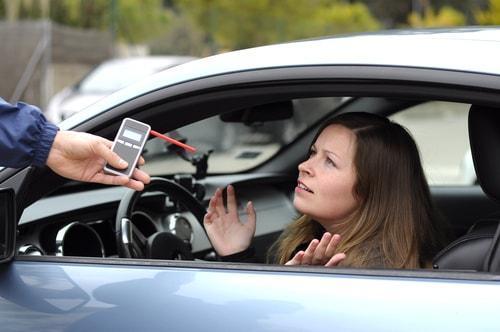What Is the Science Behind Breath Tests and Are They Ever Wrong?
 As the winter holidays approach, including potential New Year’s Eve festivities, even during the age of the COVID-19 pandemic, there is an increased likelihood of cases involving DWI (driving while intoxicated), DUI (driving under the influence), and even BWI (boating while intoxicated). As such, there is an equal increase in vigilance from law enforcement with regards to policing drunk driving. With that in mind, here is more information about one of the first things that will happen if you do get pulled over for a DWI this holiday: the breath test.
As the winter holidays approach, including potential New Year’s Eve festivities, even during the age of the COVID-19 pandemic, there is an increased likelihood of cases involving DWI (driving while intoxicated), DUI (driving under the influence), and even BWI (boating while intoxicated). As such, there is an equal increase in vigilance from law enforcement with regards to policing drunk driving. With that in mind, here is more information about one of the first things that will happen if you do get pulled over for a DWI this holiday: the breath test.
How Breath Can Be Tested for Alcohol
Alcohol moves through the alveoli of the lungs when it is consumed and evaporates into your breath. This “alveolar air,” when exhaled, provides substantial evidence to breathalyzer and other related breath tests of blood alcohol concentration (BAC). This allows officers to instantly know whether someone is drunk enough to be arrested instead of having to wait for the results of a blood or urine test.
The Types of Breathalyzers and How They Work
There are three common types of devices that analyze your breath for blood alcohol content:
All three of these devices work similarly in terms of how they are administered:
How Accurate Are Breath Tests and How DWI Defense Attorneys Disprove Them
Breathalyzers and other such tests for the alcohol content in someone’s breath, and hence, their blood alcohol content levels are quite accurate. However, they are by no means 100% accurate. In fact, there is a margin of error with any of these tests. In addition, your defense attorney might be able to argue the following on your behalf with regards to the legitimacy of the original breath test:
- The test was not administered properly, so the results are not to be trusted beyond a reasonable doubt.
- Scientifically, the person’s lung size can make it more difficult for an accurate reading to take place based on the volume and duration of their breath. A DWI defense lawyer might bring in an expert witness to provide testimony about the science behind this.
- In addition, if the person who gets pulled over has other substances in their system and are not given a proper waiting period to clear their system of that/those substance(s), the breath test results might be corrupted.
Contact a San Antonio Drunk-Driving Defense Lawyer
If you are driving with a blood alcohol content level of .08% or higher in Texas, you can be arrested for drunk driving. A simple breath test could prove your drunkenness to the arresting officer. Do not rely on that test being inaccurate—consider retaining representation from a knowledgeable San Antonio DWI defense attorney to help improve your odds of winning the case. Call the Law Offices of Sam H. Lock at 210-226-0965 for a
Sources:
https://www.txdot.gov/inside-txdot/division/traffic/safety/sober-safe/intoxication.html
https://www.ncbi.nlm.nih.gov/pmc/articles/PMC1124861/
https://sites.duke.edu/apep/module-4-alcohol-and-the-breathalyzer-test/content-how-does-the-breathalyzer-work/
https://electronics.howstuffworks.com/gadgets/automotive/breathalyzer.htm#pt3





